How the industry can prepare for FERC Order 2222 and Beyond
This site serves as a home for EPRI’s efforts on the wholesale electricity market participation of Distributed Energy Resource (DER) aggregations. Presently, it brings together the discussions, findings, and research roadmap, drafted under EPRI Collaborative Forum on Federal Energy Regulatory Commission (FERC) issued Order 2222. It encompasses various aspects of the order including market design, DER participation models, transmission and distribution system impacts, stakeholder coordination, communication infrastructure, and customer technologies. In future, further relevant EPRI research would also be disseminated through this site.
FERC Order 2222
FERC Order 2222 is a regulatory order, issued by FERC in September 2020, which set a path forward for Independent System Operators (ISOs) and Regional Transmission Organizations (RTOs) to work with distribution utilities, DER aggregators, and relevant electric retail regulatory authorities to enable the participation of DER Aggregations in the wholesale electricity markets that ISO/RTOs manage. The order aimed to provide a range of benefits, including improving the wholesale market access for DERs, promoting competition, lowering consumer costs, enhancing grid flexibility and resilience, increasing renewable integration, and spurring wider power industry innovation.
The Order laid out a broad set of guidelines to achieve its objectives. However, realizing the various benefits of the Order would require simultaneous efforts across multiple areas including rulemaking, grid operations and planning, market participation, technological integration, and consumer engagement.
FERC ORDER 2222 SUMMARY
GOALS
- Wholesale Market Access for DER Aggregation
- Lower Consumer Costs
- Competition
- Enhanced Grid Flexibility and Resilience
- Renewable Integration
- Innovation
SCOPE
- FERC Jurisdiction, Opt-Out and Interconnection Considerations
- DER, DER Technology and Retail Design
- DER Aggregation Participation Model
- Metering, Telemetry and Data Requirements
- Stakeholder Coordination
STAKEHOLDERS
- FERC
- ISOs and RTOs
- Distribution Utilities
- Aggregators
- State Regulators
- Consumers
- Equipment Manufacturers
- Software vendors
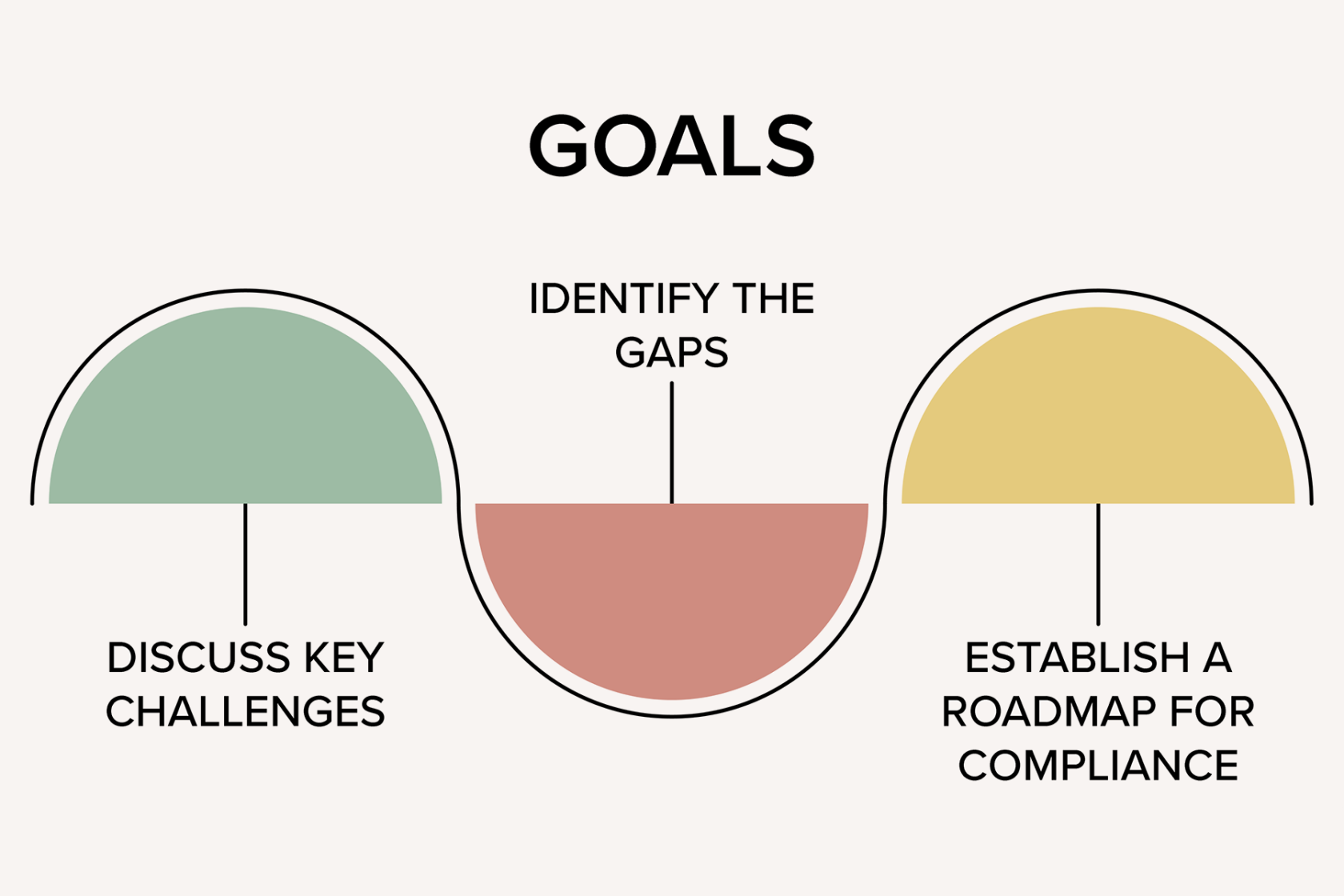
DISCUSSION TYPES
Education-based
-
ISO/RTO Markets for Distribution Utility Staff
-
Distribution Systems For ISO/RTO and Transmission Staff
-
Communications, software, hardware technology state of the art
-
International experiences
Content-based
-
Smaller groups of topical experts within workstream
-
Specific components of O2222
-
Outside experts presenting on evolving research topics
Discussion-based
-
Sharing lessons learned across regions
-
Feedback gathering
-
Stakeholder panel perspectives and discussions
-
Open Q&A, breakout rooms, and polling
BY THE NUMBERS
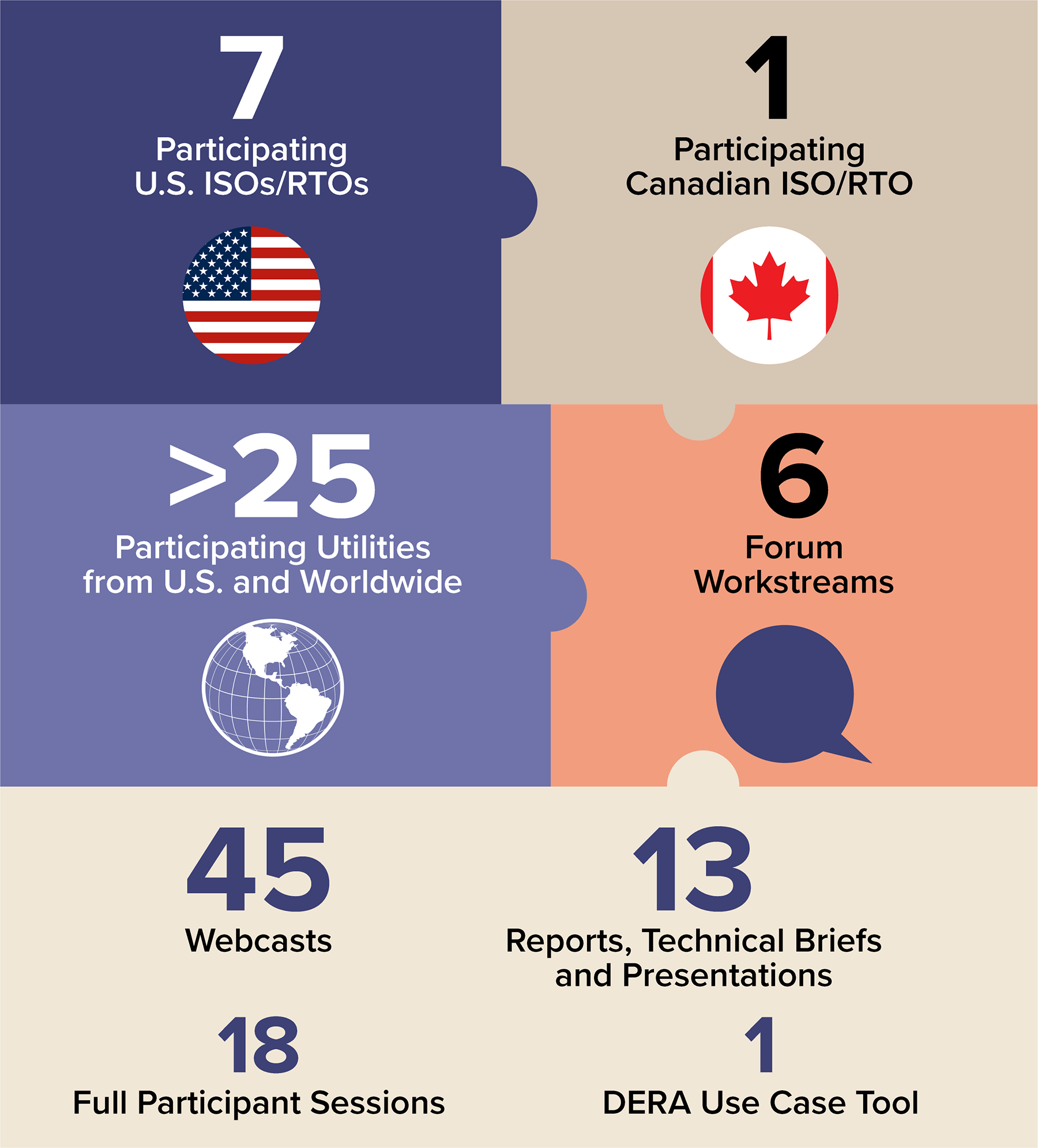
EPRI Collaborative Forum
The FERC Order 2222 was indeed significant as it impacted almost every stakeholder in the electricity sector—from a single homeowner with a small amount of rooftop solar—to FERC itself. However, it did not prescribe all the ways in which ISO/RTOs, and the many organizations participating in their markets, would specifically address the directives. This called for greater coordination and communication across the different organizations and roles. To aid this process, EPRI leveraged its strong relationships with both distribution utilities and ISOs/RTOs, bringing together one of the largest and most diverse collaborative forums of its kind. The goal of the forum was to discuss the key challenges associated with the Order, identify the remaining gaps across different focus areas, and to establish a roadmap for reliable and economically efficient stakeholder compliance.
The forum had a fairly comprehensive engagement , which lasted for a year and included all seven U.S. ISO/RTOs, a Canadian ISO/RTO, and more than 25 utilities of differing types, sizes, and locations from the United States and worldwide. Throughout the year, the forum held 18 ‘full participant’ webcasts, focusing on different topics and updates of interest to all participants. Additionally, it facilitated focused discussions on six different workstreams, covering specific areas relevant to the order. The workstreams included:
-
Wholesale Market Operations and Design
-
Distribution Reliability and Safety
-
Transmission System Operations and Planning
-
Transmission Distribution and Aggregator Coordination
-
Information, Communication and Cyber Security
-
Customer Technologies and Retail Programs
The forum discussions included a variety of sessions that approached topics from different angles. Some were education-based, aiming to inform stakeholders about topics outside their expertise, while others were content-based, focusing on insights from topical experts. Additionally, there were discussion-based sessions for sharing lessons, feedback, and perspectives from various stakeholders.
WORKSTREAMS
Wholesale Market Operations And Design
Wholesale market design and operation from the ISO/RTO perspective including DER aggregation participation models and market rules

Distribution Reliability And Safety
Distribution system reliability from the distribution utility perspective including planning mechanisms and operational considerations

Transmission System Operations And Planning
Transmission system reliability from the transmission owner or ISO/RTO perspective including operations tools and planning assessments
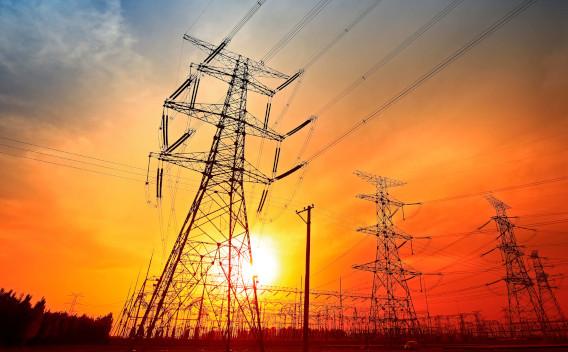
Transmission Distribution And Aggregator Coordination
Coordination from the perspectives of ISO/RTO, distribution and transmission utility, DER aggregator, and electric retail regulatory authority

Information, Communication And Cyber Security
Evaluation of data exchange, cyber security, metering and telemetry, hardware and software needs.
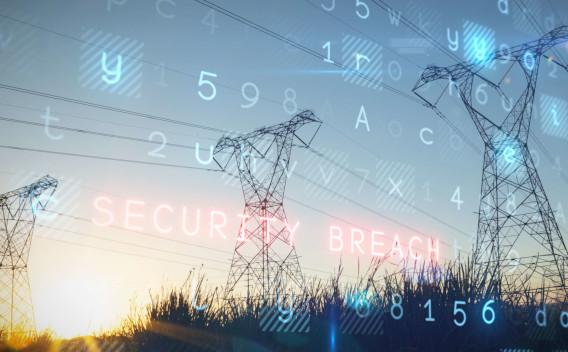
Customer Technologies And Retail Programs
Outlook on DER technology penetration and retail participation issues including dual participation and double counting prevention

DERA Use Case Survey Tool
A key cross-cutting challenge for different stakeholders is the difficulty to communicate in similar contexts about generic DER Aggregation (DERA) and their potential challenges. DERs assume many different forms, and due to FERC’s rule of heterogeneity, DERAs can be even more varied.
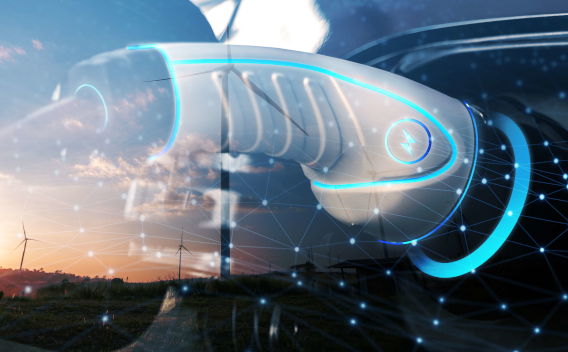
Public Deliverables
- 3002020586 DERA Participation in Organized Markets: FO222 summary state of art, and research needs
- 3002020587 Market Participation Model Design Considerations for DERAs
- 3002020588 The Feasibility Test for Geographically Broad and Multi-node Aggregations
- 3002020589 The role of distribution utilities in enabling market participation for DERAs
- 3002020590 Evolving Distribution Planning Practices for Market Participation
- 3002020591 DER Market participation considerations for transmission operators
- 3002020592 Transmission Planning Considerations For DER Wholesale Market Participation
- 3002020593 Coordination Frameworks to meet needs of FERC Order 2222
- 3002020596 Metering, Data and Information, and Telemetry
- 3002020597 Systems interoperability and cyber security
- 3002020598 DER Technology Insights
- 3002023292 Dual Participation and Double Counting Perspectives
- 3002022890 DERA Use Case Information Tool
- 3002020599 FERC Order 2222 Roadmap and Final report